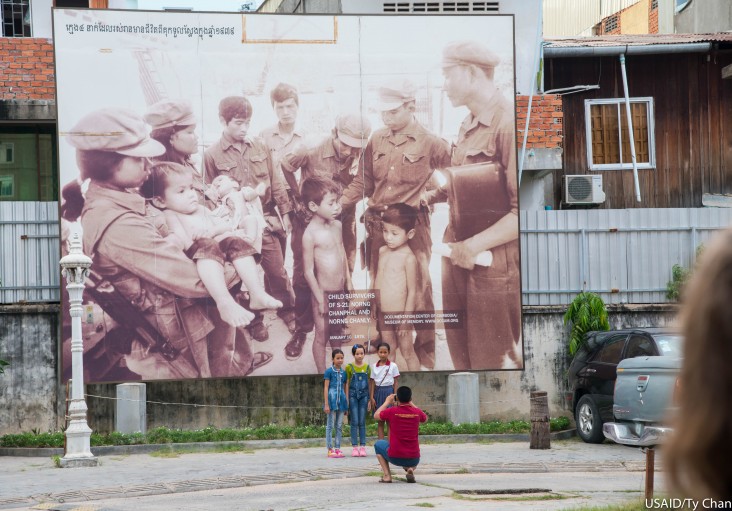
For Immediate Release
The U.S. government announced $5.8 million in additional endowment support to the Documentation Center of Cambodia (DC-Cam) that will boost the sustainability of the organization and its efforts to promote national peace and reconciliation through the preservation (both physically and digitally) of Cambodia’s Khmer Rouge-era historical records.
Since the endowment was established in 2005, the U.S. Agency for International Development (USAID) has now contributed a total of $9.8 million to DC-Cam. Together, the U.S. government and DC-Cam are playing a prominent role in promoting memory, reconciliation, and healing in Cambodia.
“Today’s endowment contribution, together with USAID’s past support, will provide the financial foundation for DC-Cam’s operations over the next twenty years,” noted USAID Cambodia Mission Director Polly Dunford. “We are proud to support DC-Cam’s efforts to create a brighter future by teaching young people about the value of learning history, preserving their culture, and promoting and protecting human rights.”
DC-Cam seeks to build a more peaceful society through genocide research and education. By documenting the grave human rights abuses of the Khmer Rouge period, DC-Cam has played an important role in helping Cambodians come to terms with untold suffering through the promotion of national peace and reconciliation.
# # #
About the U.S. Agency for International Development
USAID was founded in 1961 by President John F. Kennedy and serves as the lead agency of the U.S. Government for foreign assistance. Since 1992, USAID has invested over $1 billion towards Cambodia’s development.
About DC-Cam
The Documentation Center of Cambodia (DC-Cam) was founded after the U.S. Congress passed the Cambodian Genocide Justice Act in April 1994. DC-Cam’s objectives are to record and preserve the history of the Khmer Rouge regime for future generations, as well as to compile and organize information that can serve as potential evidence in a legal accounting for the crimes of the Khmer Rouge. It has provided over half a million pieces of evidence to the Khmer Rouge Tribunal. These objectives represent DC-Cam’s promotion of memory and justice, both of which are critical foundations for the rule of law and genuine national reconciliation in Cambodia.







Comment
Make a general inquiry or suggest an improvement.